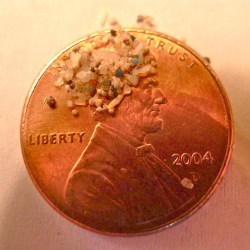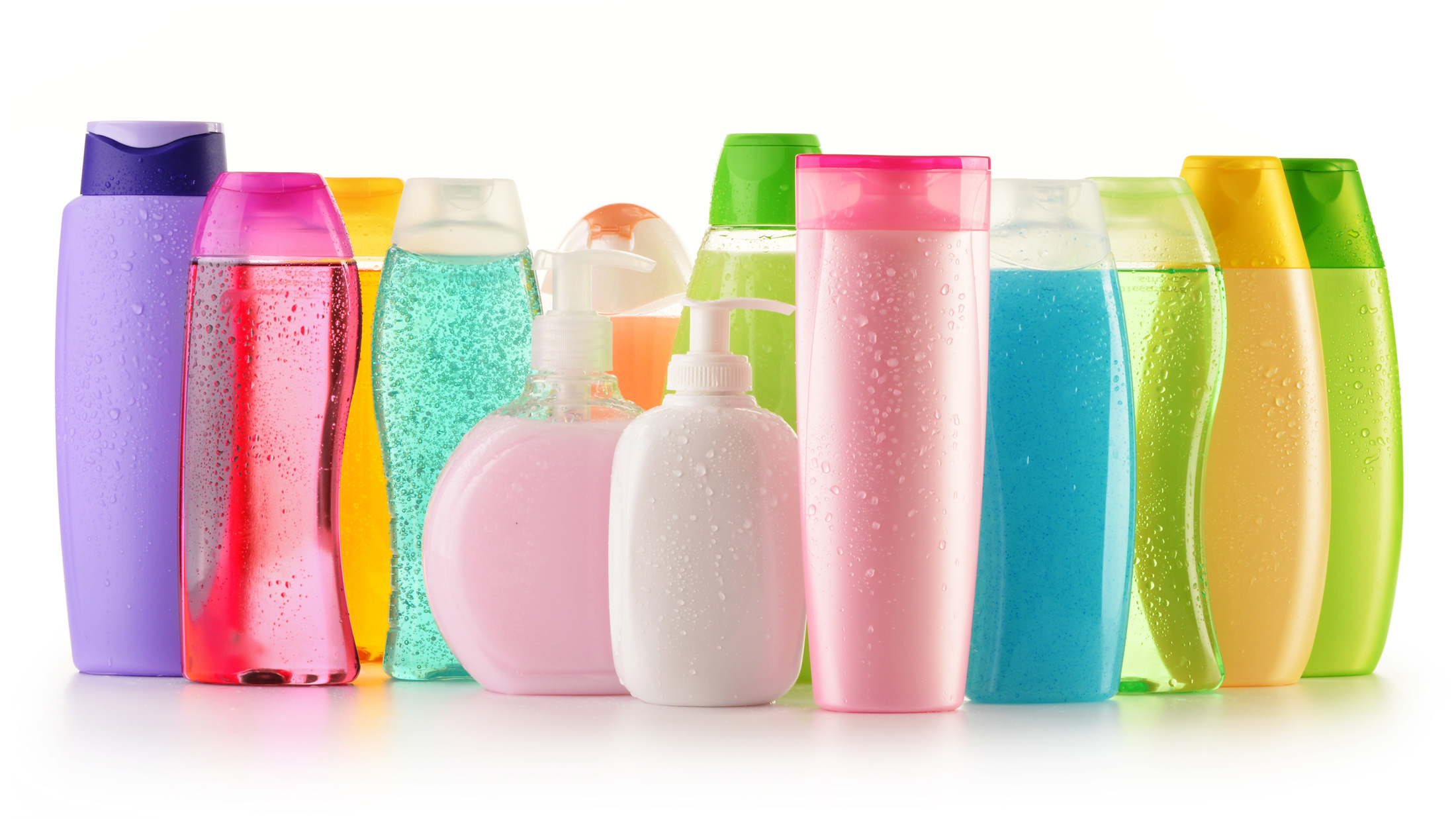Scrubbing dead skin cells off your face and tartar off your teeth trashes the environment if it’s not done right. The right way to do it is with facial scrubs, shampoo, and toothpaste that do not contain microbeads. The microscopic balls of hard plastic flow down drains and pass through wastewater treatment plants, ending up in rivers, lakes, and oceans, where they enter the food chain.
Finding microbead-free products isn’t easy right now — you have to read ingredient lists and steer clear of products that contain “polyethylene” or “polypropylene.” Natural alternatives include ground almonds, oatmeal, and pumice.
But if lawmakers in California and New York get their ways, the microbead-loaded varieties will become nearly impossible to purchase in two of the most populous states in the country.

5 GyresA microbead ‘fro on Abe Lincoln.
Late last month, New York Assemblywoman Michelle Schimel (D) got the ball rolling when she introduced A.8652, which would ban the sale of personal care products and cosmetics containing microbeads. On Tuesday, Schimel was one-upped by Assemblyman Robert Sweeney (D), who, with the backing of New York Attorney General Eric Schneiderman (D) and the nonprofit 5 Gyres, introduced A.8744 — which would ban the sale, manufacture, and distribution of such products.
New York League of Conservation Voters President Marcia Bystryn said Sweeney’s bill would not only help to protect the state’s lakes and waterways, but would also “set an example for other states around the country to address this emerging environmental threat.”
And that it did.
California Assemblyman Richard Bloom (D) introduced AB 1699 on Thursday. The bill would prohibit the sale of most products containing microplastic, though it would permit tiny amounts of the tiny plastics — less than one part per million.
Proctor and Gamble, Unilever, and Colgate-Palmolive have all made recent commitments to start phasing microbeads out of their products. “We are discontinuing our limited use of micro plastic beads as scrub materials in personal care products as soon as alternatives are qualified,” a Procter & Gamble spokeswoman told the L.A. Times.
The new legislative pressure should help ensure that these corporate giants make good on their pledges to scrub the microplastics out of their cleansing products.



